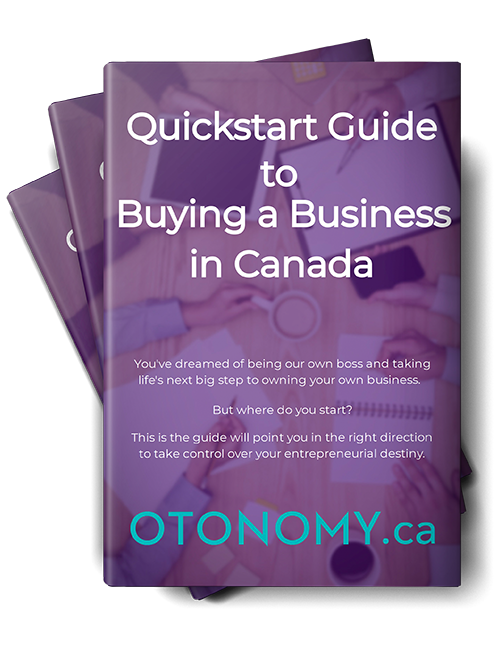Seller financing is where an exiting business owner chooses to provide a loan to their buyer to help them cover the purchase price. Typically these loans are paid back over time and with interest.
Also known as vendor take-back financing or owner financing, this option can be a useful tool for sellers and buyers alike. For sellers it can reduce the time it takes to sell their business by increasing the pool of potential buyers available, and can be used as a tool to settle on a final price when the buyer and seller cannot agree due to buyer financing constraints. For buyers it provides a funding source separate from traditional options such as bank loans, as well as can help ensure the seller remains engaged in the business post sale which can aid in the transition.
The Advantages for Sellers
Maximize your selling price
As a business owner you want to maximize the value of your hard work. Offering financing to the person(s) taking over your legacy can help you do that by giving them the much needed financial path to meet your asking price. Seller financing can reduce a buyers concerns about how they are going to raise the capital needed and make negotiating a selling price that much easier.
Sell your business faster
Traditional financing can be difficult for buyers to obtain. By offering seller financing you expand the pool of potential buyers for your business. Otonomy strongly recommends that if you are interested in exploring this option with potential sellers that you indicate as much when you list your business versus waiting to discuss it those who contact you.
Monthly Income post sale
There are a vast number of ways to structure a seller financing arrangement. The vast majority of them typically include interest to be paid periodically. This interest can be a source of additional income to you post sale.
Invest in your legacy
How your structure the transition of your business to the new owner is one of the most important components of selling your business. By offering seller financing you can remain somewhat engaged with the business, and optionally can negotiate with the buyer terms that have you continue in a consultative manner for a fixed period of time.
The Advantages for Buyers
Easier access to capital
Buying a small business can be expensive. Depending on your own financial situation and the type of business you are buying you may need to explore a variety of financing options to fully fund the purchase. Seller financing can be a less onerous path as you are able to directly negotiate the terms and conditions with the seller.
Faster closing
Accessing seller financing means that you may be able to buy the business faster. By removing traditional financing sources such as banks, you reduce the timelines needed to close the sale.
Keep the former owner involved
To ensure you are successful in your new venture it is almost always recommended that you work with the seller to transition the business to you. With seller financing you have a direct connection with the former owner that ensures they will stay engaged.
The Disadvantages and Risks
The sale becomes a relationship
Seller financing ties the buyer and seller together for an extended period of time. While, as mentioned above, this can be an advantage, it can also become a problem. For example, once the business is sold and the transition complete the new owner may want to take the business in a different direction than the old owner would like. Situations like this can result in conflict and sour the relationship. As there is a long term financial relationship in-place this can become a large issue for both parties. Otonomy strongly recommends that both parties have an open discussion about the long term relationship and discuss as part of the agreement how they will approach conflicts in the future.
Sellers must wait to receive the full purchase price
While seller financing can result in a faster sale at a higher price, it also means that the seller will have to wait to receive the full value of the sale. It is not uncommon for seller financing arrangements to extend 10 years into future.
The potential for foreclosure
A successful business today isn’t always a successful business tomorrow. As seller financing arrangements are typically for a fairly long term there is the potential that the business will not last for the length of the agreement. In those situations the seller may find that the buyer is in default and that they either need to foreclose on the business or suffer a loss of the remaining loan amount.
How To Structure Seller Financing
Hire professionals
Seller financing arrangements are best structured through professionals (lawyers and accountants) as they will ensure that both parties are properly represented and that the agreement is built in such a way as to be legally enforceable. Otonomy recommends that both the buyer and seller hire professionals to represent them before signing an agreement.
Structure that works for both the buyer and the seller
The beauty of seller financing arrangements, and business sale agreements in general, is that they can be creatively structured. As they are financial agreements there will be a term for the loan and typically there is an interest rate. Beyond that there should be stipulations for early repayment as well as terms to cover other potential eventualities. How those terms are structured is up to the parties involved and can be specific to your situation.
Discuss early and ensure its all written down
Like any legally binding agreement it is best to have a clear and open discussion as early in the process as possible. That way there is no confusion on either side around what is potentially going to be agreed to. Once you have agreed it is always best to write it down versus trying to remember what was discussed.




